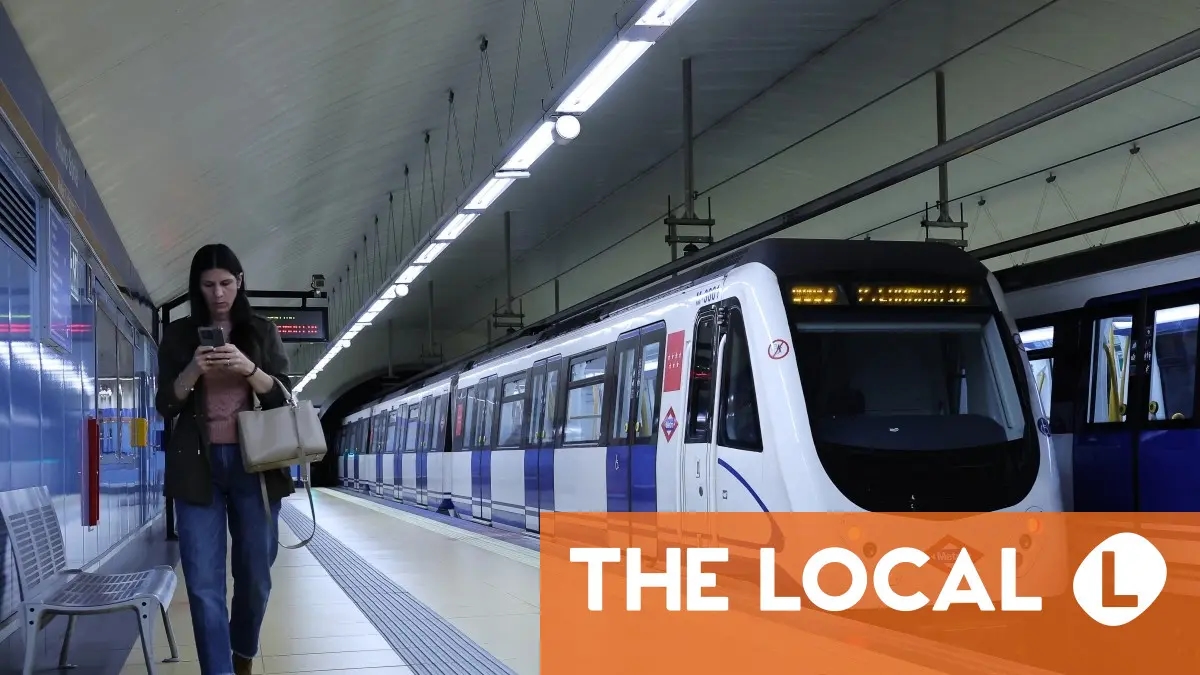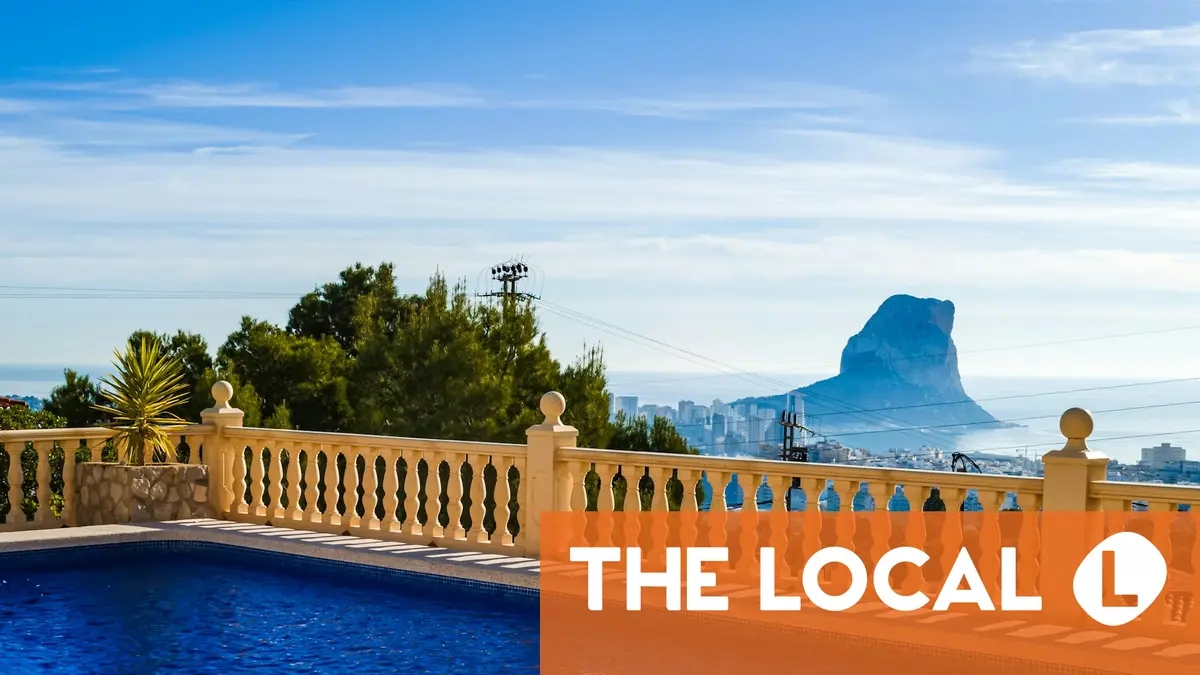A heart-stopping autumn

Starting in January, Spain goes into election mode (even more so), with campaigns first in Castile and León and then in Andalusia. But before the end of the year, the Dragon Khan of Spanish politics has some heart-stopping twists and turns in store. Some will end up in court. Who will emerge stronger or weaker from this roller coaster?
Ábalos is free from prison for now.
Although the erosion of the Ábalos case is already considered a given in the PSOE, a prison sentence for the party's former number three would have been a further blow to Pedro Sánchez. José Luis Ábalos appeared before the judge yesterday, doubting his own fate. He invoked his right not to testify, and although the public prosecutor's office requested his imprisonment, the prosecutor's office did not, and he was ultimately released . His summons was a result of the latest Civil Guard report on the PSOE's payments for expenses as a party leader. Meanwhile, his successor as party organizational secretary, Santos Cerdán, an alleged member of the same corrupt network, remains in pretrial detention. He will remain there until the end of the year, and that is the time the UCO (Union of the Supreme Court of Catalonia) should find the trail of the alleged loot. Whether or not they find it is essential to determining the scope of this bombshell that almost shook Sánchez's government before the summer. The president's parliamentary allies gave him a margin of confidence, always on the lookout for new developments.
Will the UCO launch another meteorite?

Envelope with money from the PSOE to José Luis Ábalos.
The VanguardThe Civil Guard unit reports have become political landmarks. The first, those in which Ábalos, Koldo García, and Santos Cerdán could be heard discussing the distribution of funds, triggered an earthquake, but the subsequent ones have contributed little more to the criminal investigation. The latest one reflects cash payments from the PSOE to Ábalos and Koldo for expenses that the party claims were justified. The image of envelopes bearing the PSOE logo and cash suggests little oversight of the accounts, but the truth is that, although it may seem like something from another era, several state institutions operate with cash payments for their members' expenses, which must be duly justified with invoices. In any case, despite the PP's efforts to assimilate these envelopes to irregular financing by the PSOE, they do not constitute conclusive evidence, for the moment, of this type of practice. However, the UCO is expected to soon have a new report ready, which some sources claim would implicate Minister Ángel Víctor Torres. This would be a significant blow to Sánchez, as this is not someone far removed from his political circle of trust, but quite the opposite. The president's efforts to uncover corruption would be severely undermined.
Interrogation of Sánchez
For many months, the People's Party (PP) has considered whether to use its absolute majority in the Senate to summon Pedro Sánchez for questioning before the commission of inquiry into the Koldo case. This is the first time a serving prime minister has appeared in such a setting, with the exception of José Luis Rodríguez Zapatero, who testified before the commission of inquiry into the 11-M attacks in Congress a few months after taking office, but it was a completely different situation. Others appeared, but now as former prime ministers. The PP had many doubts about whether to take this step or not. They weighed arguments for and against. If Alberto Núñez Feijóo emphasizes every day the scandal that, in his opinion, surrounds the prime minister, the logical thing to do was to try to corner him by any means possible. But there was also an underlying fear within the PP that Sánchez would emerge unscathed from this appearance, which could even benefit him and reinforce his image as an indestructible leader, weakening Feijóo. It should be noted that the questioning will not be conducted by a leading figure of the PP, as it must be a senator. Feijóo has finally made his decision now, following the latest report from the UCO (Union of the Workers' Union) with the photos of the PSOE envelopes containing money. Sánchez's appearance is scheduled for the last week of this month. If the president comes out of the questioning unfavorably, it is expected that the PP will further emphasize denouncing corruption as a central focus of its opposition work.
An unprecedented event: the attorney general in the dock

The Attorney General of the State, Álvaro García Ortiz.
Dani DuchOn November 3, a State Attorney General will sit in the dock for the first time in Spain. Álvaro García Ortiz is charged with allegedly leaking to the press an email from Alberto González Amador, Ayuso's partner, about his alleged tax fraud. The Attorney General is accused of revealing secrets. He is being tried by the Second Chamber of the Supreme Court, previously presided over by Manuel Marchena (who remains on the court) and now headed by Andrés Martínez Arrieta, considered a moderate conservative. García Ortiz is a key player for Sánchez. If he were convicted and forced to resign, the Attorney General's Office would be weakened, which is currently one of the few levers of the judiciary that can be considered led by a progressive individual at a time of fierce confrontation between the executive branch and the judges. (The Constitutional Court is not, strictly speaking, a judicial body.) The sentence is expected to be announced approximately one month after the end of the trial, so it's only a matter of months.
Slippery Anniversaries
The government will emphasize the cultural battle against the PP by taking advantage of the 50th anniversary of Francisco Franco's death on November 20th. On the 44th anniversary, the executive undertook the removal of the dictator's remains from the Cuelgamuros Valley. Now, with Vox on the rise, the anniversary presents itself as an opportunity for Sánchez to once again warn against a possible alliance between the PP and the far right. Two days later, the 50th anniversary of Juan Carlos's proclamation as king will be marked, but the PSOE will try to play it more lightly.
First trial of Ayuso's boyfriend

Alberto González Amador.
ArchiveSome sources indicate that Judge Juan Carlos Peinado, who is handling the case of Begoña Gómez, the president's wife, was trying to expedite this matter to bring her to trial at the same time Ayuso's partner is scheduled to do so. However, the Madrid Provincial Court corrected him and ordered him to better substantiate his investigation, which represents a clear delay in the investigation. Therefore, the trial against González Amador, the Madrid president's boyfriend, will be held before then. The judge handling this case has ordered the opening of an oral trial , still without a date, for alleged tax fraud, falsification of commercial documents, and criminal organization. However, the PSOE is not only waiting to see how that case develops; it also has more expectations in the Quirón case, and that is where the Socialist candidate for the presidency of the Community of Madrid, Minister Óscar Puente, has already begun to attack. The prosecution believes Ayuso's boyfriend bought a worthless company belonging to the wife of the president of the Quirón clinic for half a million in exchange for increasing revenue with more contracts. The PSOE sees this as a possibility of directly implicating Ayuso.
Another territorial conflict
To round off the months leading up to Christmas, there will be no shortage of territorial conflict, always latent, as the government intends to present the new regional financing model before the end of the year . The Ministry of Finance has been working on the system for some time with an eye toward being able to defend the idea that all the autonomous regions will receive more money, given that there is enough to share. Minister María Jesús Montero has the difficult task of defending this in Andalusia, where she is a candidate for the regional government. In any case, the debate will inevitably turn into a spate of grievances, with the PP focusing primarily on the supposed benefits for Catalonia under the pacts between the Socialists and the ERC, although the agreed-upon singularity has more to do with the ability to collect taxes, something that is still pending legal approval in the Congress of Deputies.
After the Christmas holidays, an electoral cycle will begin in which the PP hopes to gain momentum for the general elections, while the PSOE believes Feijóo's stagnancy will be confirmed. In Castile and León, the Socialists are vying to become the leading force, although they have little chance of governing, while in Andalusia, Juanma Moreno Bonilla's challenge is to repeat his absolute majority or become dependent on Vox. Meanwhile, this fall is full of twists and turns.
lavanguardia




